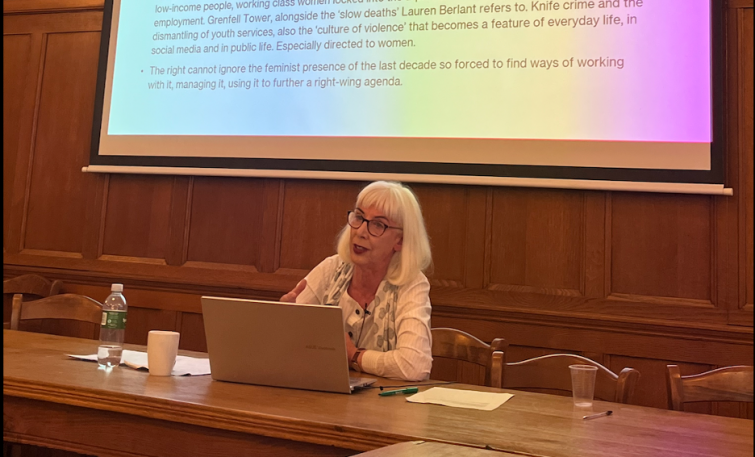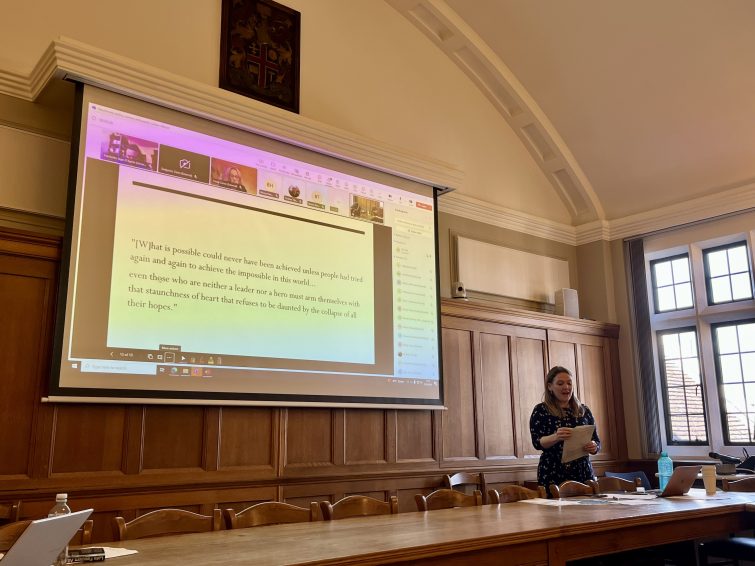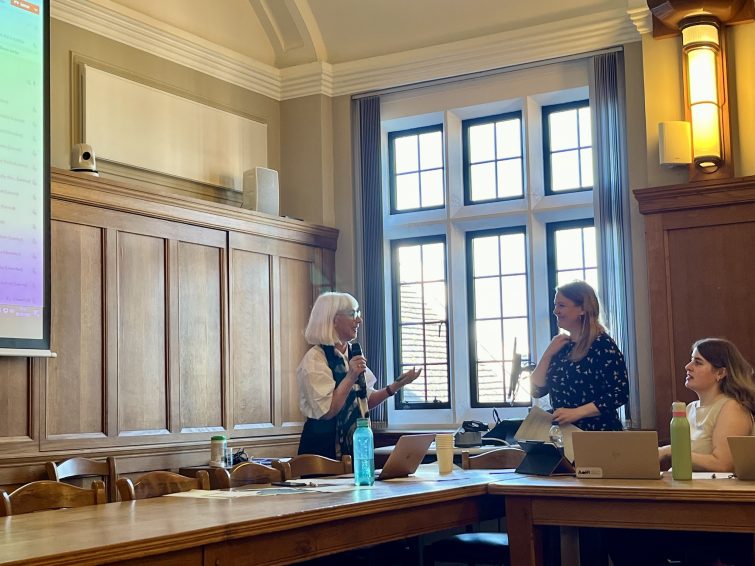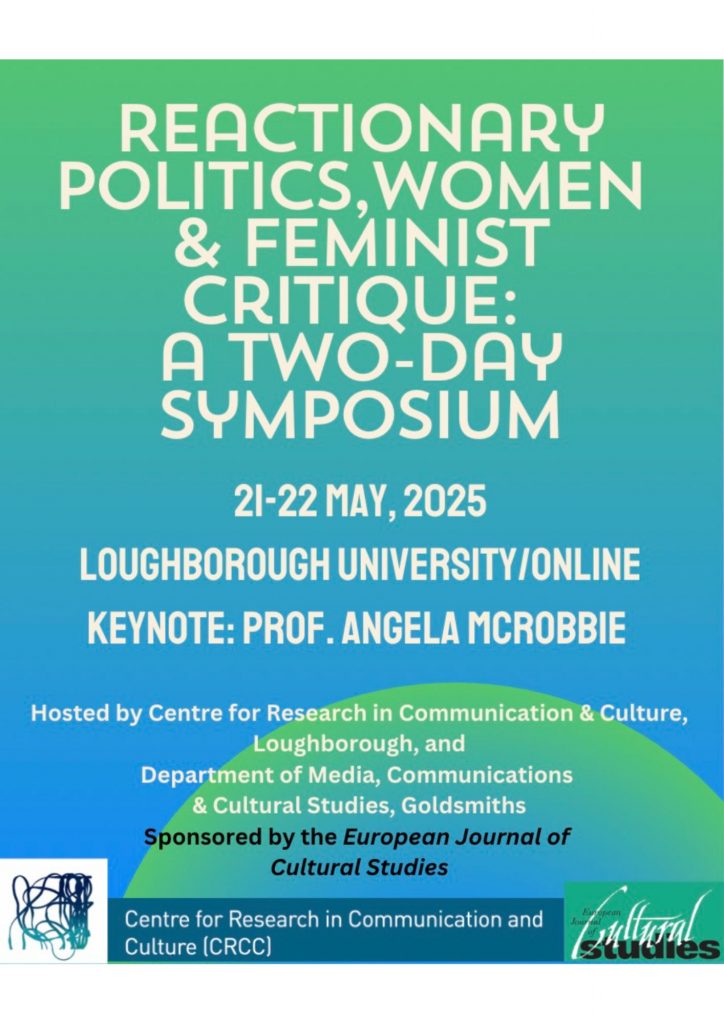CRCC hosts international symposium ‘Reactionary politics, women and feminist critique’
The Centre for Research in Communication hosted the international, two-day symposium ‘Reactionary politics, women, and feminist critique’ on May 21 and 22. It was co-organized with the Department for Media, Communications and Cultural Studies at Goldsmiths, University of London, and sponsored by the European Journal of Cultural Studies.
The event focused on forms of media culture that are primarily addressed to women – seeking to theorise the role of feminised popular and digital culture in a context of resurgent reactionary politics.
The keynote was given by the preeminent scholar of feminist media and cultural studies, Professor Angela McRobbie (Goldsmiths). Her talk was entitled ‘Top Girls No More? Feminism After Neoliberalism and the New Far Right’.

Jilly Kay, Senior Lecturer in Communication and Media at Loughborough, gave the opening address entitled ‘The rise of the femosphere: feminism and reactionary digital culture in nihilistic times’.


The symposium covered topics such as the tradwife phenomenon in different cultural contexts; transnational networks of trans exclusionary feminisms; anti-feminist Christian influencers; AI and far-right dystopias; and ‘divine feminine’ influencers. Papers were given by a mixture of world-leading and early career scholars based in the Czech Republic, Brazil, US, the Netherlands, Canada, Germany, Sweden, Spain, and the UK.
Across the two days, the talks included ‘Tradwives, rage and feminism’ by Sarah Banet-Weiser (University of Pennsylvania); ‘Remediated Body and Gender: The Rise of Trans Exclusion in Self-identifying Radical Feminists in South Korea’ by Woori Han (University of Exeter); ‘“I am not a feminist”: understanding the appeal of anti-feminist influencers in the wellness space’ by Stephanie Baker (City St George’s, University of London) and Rosalind Gill (Goldsmiths, University of London); and Jazmin Duarte Sckell (Freie Universität Berlin, online): ‘Anti-feminist ideas from female influencers in Latin America’.
A number of papers were given by Loughborough University staff and students, including Iliana Depounti: ‘Media studies approach to genAI chatbots in a reactionary context: Continuities and change in female Replika users’ romancing and self-help’; Elizabeth Peel: “’Gender Debate” Discourse: Polarising, bigoted and validating’; and ‘Heteropessimism on TikTok: #BoySober and the feminised reactionary digital ecology’ by Jilly Kay, co-presented with Briony Hannell (Manchester University).
Panels were also chaired by Loughborough colleagues Surya Monro (Sociology), Victoria Browne (Philosophy), and from Communication and Media, Yuval Katz, Alex Maher, Jessica Robles, and Cara Xu.
Across the two days, there were nearly 100 online attendees and 50 in-person.
The symposium brought together scholars working on the emergent area of reactionary digital culture that is addressed to women, a topic that is currently under-theorised and yet increasingly urgent to understand. It helped to forge important new connections and develop more transnational understandings of the perplexing new political formations and alliances that are taking shape within ‘feminised’ digital culture. As such it helped to establish a potentially new field of scholarly inquiry, and ignite a new set of debates around feminism and media culture. A journal special issue featuring many of the papers from the symposium is set to follow.
